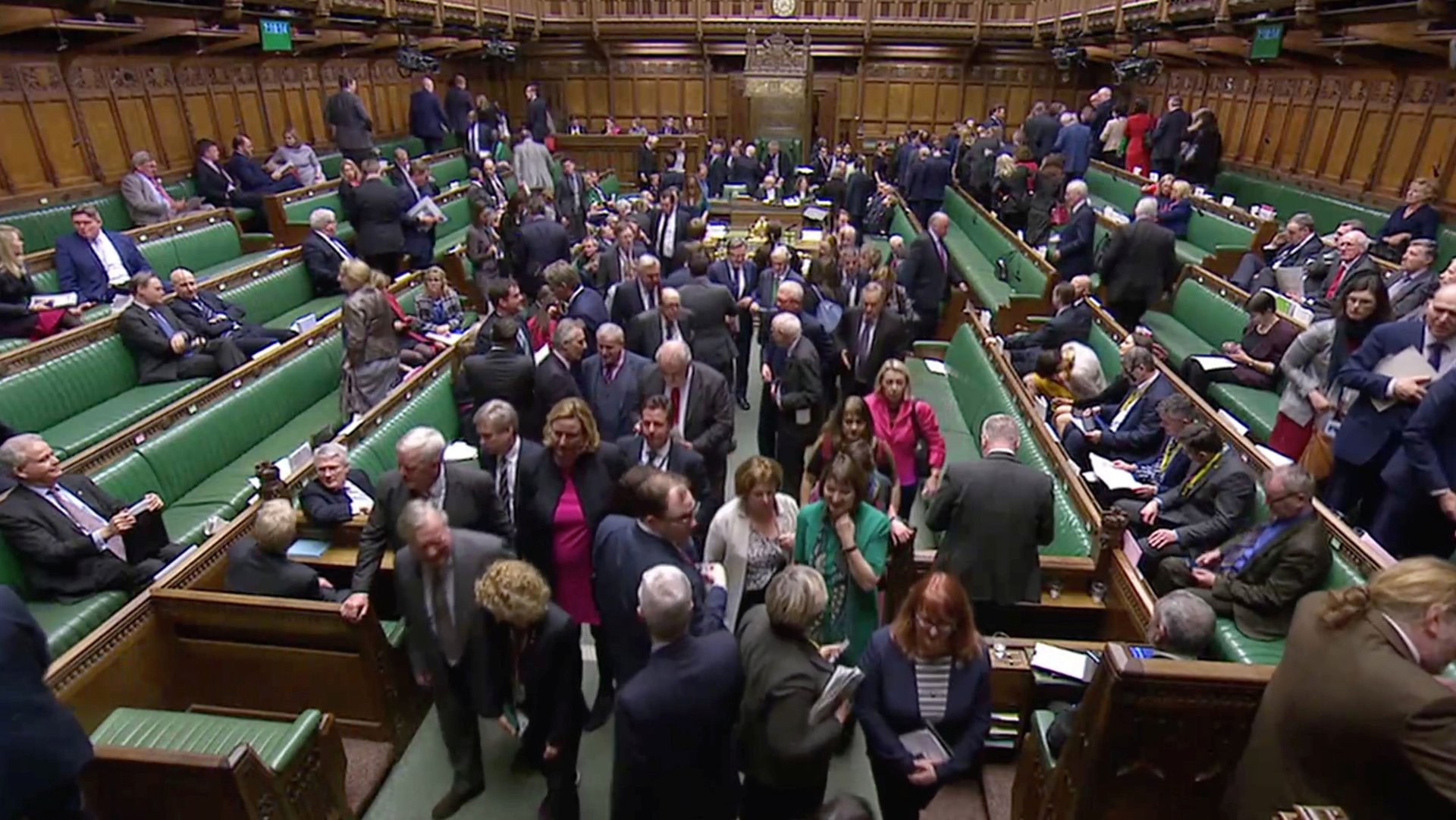The UK voted to never not do nothing on Brexit. Got it?
UK politicians voted tonight (March 13) against leaving the EU without a deal outlining the terms of its separation from the bloc. The final tally was 321 votes in favor of taking a “no-deal” Brexit off the table, 278 votes against, with a number of Tory rebels flouting their leader and voting for the amended motion.


UK politicians voted tonight (March 13) against leaving the EU without a deal outlining the terms of its separation from the bloc. The final tally was 321 votes in favor of taking a “no-deal” Brexit off the table, 278 votes against, with a number of Tory rebels flouting their leader and voting for the amended motion.
It is yet another humiliating defeat for British prime minster Theresa May, whose amended Brexit deal was defeated last night (March 12) for a second time since January by an overwhelming majority.
The meaning of tonight’s vote for the future of the country is difficult to discern. The vote reveals the will of politicians, but not much beyond that. It is not legally binding, for instance. A second Brexit referendum, as opposition leader Jeremy Corbyn supports, remains a possibility.
Parliament will vote tomorrow on whether to extend Brexit negotiations and delay a March 29 departure from the EU in attempt to buy themselves more time. But that extension request is still subject to the approval of the EU’s 27 member states. A no-deal exit remains a prospect if an agreement isn’t reached during the extension.
There is a possibility that a third vote on May’s deal may also take place before or during the transition period. May has encouraged MPs to vote for her deal if they wished to definitively rule out a “no deal” exit. If they cannot, the UK will need to seek a longer extension, which would force them to take part in European Parliament elections in late May.
The outcome of tonight’s vote will come as a temporary relief to UK-based companies and businesses, who stand to take a hit in the event of a “no deal” Brexit. If the country left the bloc (membership) with no deal or transition structure in place, British financial services would be shut out of any work on the continent. Current forecasts suggest that a no-deal Brexit could slash economic growth by about 7.6% (pdf) in the long term.
But whatever tonight’s vote might suggest about the will of MPs, it doesn’t actually change anything legally—meaning a “no deal” Brexit could still be in the offing.